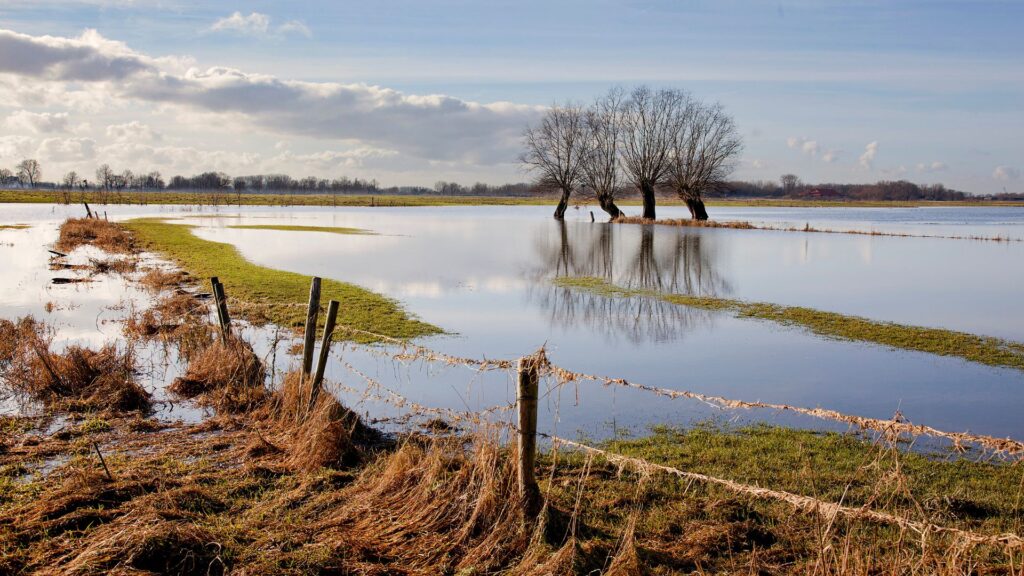Measure, Reduce, and Verify (MRV): Enhancing the Integrity of Climate Action
As the world grapples with climate change, mechanisms of emissions reduction targets and measurement have become essential tools in the global strategy for reducing greenhouse gas emissions. Amid the growing network of initiatives, ensuring authenticity and real-world impact is crucial. This highlights the importance of the Green Initiative Measure, Reduce, and Verify (MRV) process, a key element in validating the effectiveness of emissions reduction efforts in climate action and enhancing credibility. At The Backbone of Climate Mitigation Efforts At its core, the MRV process is a systematic approach designed to accurately quantify the reduction in greenhouse gas (GHG) emissions achieved through various climate mitigation activities, such as conservation and reforestation projects. This intricate process involves the detailed measurement of emissions reductions, the documentation of the results of these findings to an independent verifying body, and the subsequent verification to authenticate the results. Successfully completing this process is critical since it may or may not signify a reduction of GHG emissions, measured in tons of CO2 equivalent. For a simplified understanding of what can be measured, reduced, and verified within the MRV framework, consider the following examples: Energy Consumption in Buildings Measure: Track electricity and heating fuel usage over a specific period.Reduce: Implement energy efficiency measures such as LED lighting, insulation, or energy-efficient HVAC systems.Verify: Compare post-implementation energy consumption data to baseline measurements to quantify reductions in GHG emissions. Transportation Measure: Calculate fuel consumption and mileage of a fleet of vehicles.Reduce: Transition to electric vehicles, improve route planning, or encourage public transport and biking for employees.Verify: Monitor changes in fuel consumption and vehicle emissions after implementing reduction strategies. Waste Management Measure: Assess the volume and composition of waste produced by a business or community.Reduce: Introduce recycling programs, compost organic waste, and reduce overall waste generation.Verify: Evaluate changes in waste diversion rates and reductions in waste-related emissions. Land Use and Forestry Projects Measure: Estimate carbon stored in forests or land before project implementation.Reduce: Engage in activities such as reforestation, sustainable forest management, or protection of existing forests.Verify: Measure increased carbon sequestration or avoided emissions through improved land management practices. Renewable Energy Projects Measure: Document the amount of energy produced by fossil fuels before project implementation.Reduce: Install solar panels, wind turbines, or other renewable energy sources to replace fossil fuel energy.Verify: Calculate the reduction in GHG emissions by comparing renewable energy generation to the previous fossil fuel baseline. MRV goes beyond a set of procedures; it’s an essential process for verifying the effectiveness of emissions reduction initiatives. It plays a crucial role in ensuring that efforts to offset carbon footprints and fulfill climate commitments are genuine and impactful. Green Initiative’s MRV process provides efficient guidance and validation for various initiatives across different sectors leading to decarbonization. Fostering Community Benefits and Climate Goals A key aspect of implementing MRV is its role in ensuring the benefits. By verifying the authenticity and impact of emissions reductions, MRV processes not only bolster the credibility of these initiatives but also encourage a broader engagement in climate action, ensuring that the proceeds support sustainable development and environmental protection at the grassroots level. Communities can benefit from Green Initiative’s Measurement, Reduction, and Verification (MRV) process in several significant ways: Environmental Improvements MRV processes are related to climate mitigation projects, such as reforestation or clean energy initiatives, which can directly benefit communities. Cleaner air, improved water quality, and enhanced biodiversity are just a few examples of how environmental health can be positively impacted, contributing to the overall well-being of community members. Economic Opportunities Projects that undergo MRV benefit communities economically. For instance, reforestation projects can create jobs in tree planting and forest management. Similarly, renewable energy projects can offer employment opportunities in installation, maintenance, and monitoring. These projects can stimulate local economies and provide new income sources. Enhanced Resilience By encouraging decarbonization practices and improving the local environment, MRV processes can help communities become more resilient to the impacts of climate change. For example, better land management and conservation practices can reduce the risk of flooding and drought, protecting communities and their livelihoods. Access to Funding Green Initiative’s MRV provides a framework for transparently measuring and reporting reductions of climate action initiatives and projects, which can be crucial for accessing funding. Verified results can attract investment from both public and private sectors, enabling further community development projects and initiatives aimed at sustainability. Empowerment and Education Engaging with GI MRV processes can empower communities by involving them in monitoring and verification activities, providing education on environmental issues, and encouraging participation in local decision-making processes. This involvement can increase awareness of climate change impacts and foster a culture of sustainability. Global Recognition Successfully verified initiatives can put communities on the map, attracting attention and support from more organizations and other stakeholders interested in replicable models of successful climate action. In summary, MRV can bring various benefits to communities, from environmental improvements and economic opportunities to enhanced resilience against climate change, access to funding, empowerment, social equity, and global recognition. Charting the MRV Process The MRV journey begins with the critical step of establishing a reference level or baseline against which the effectiveness of emissions reduction programs is measured. This entails the adoption of specialized methodologies and assumptions tailored to the specific requirements of different sectors and initiatives. The evolution of MRV standards and systems has enabled a more comprehensive and accurate tracking of emissions and reductions across various levels of implementation, from localized projects to broader, national-scale programs. This includes employing diverse data collection methods, from advanced technological solutions to community-led monitoring efforts, ensuring a thorough and equitable assessment of emissions reductions. Empowering Climate Goals: The Transformative Role of MRV Across Sectors Integrating Green Initiative MRV (Measure, Reduce, and Verify) into climate action strategies offers a robust way to ensure that emissions reductions are genuine, substantial, and aligned with global sustainability goals. Here are some practical examples of how MRV is applied across various sectors and initiatives, showcasing its versatility and critical importance: Forestry and Land Use In projects aimed at reducing deforestation
Measure, Reduce, and Verify (MRV): Enhancing the Integrity of Climate Action Read More »










